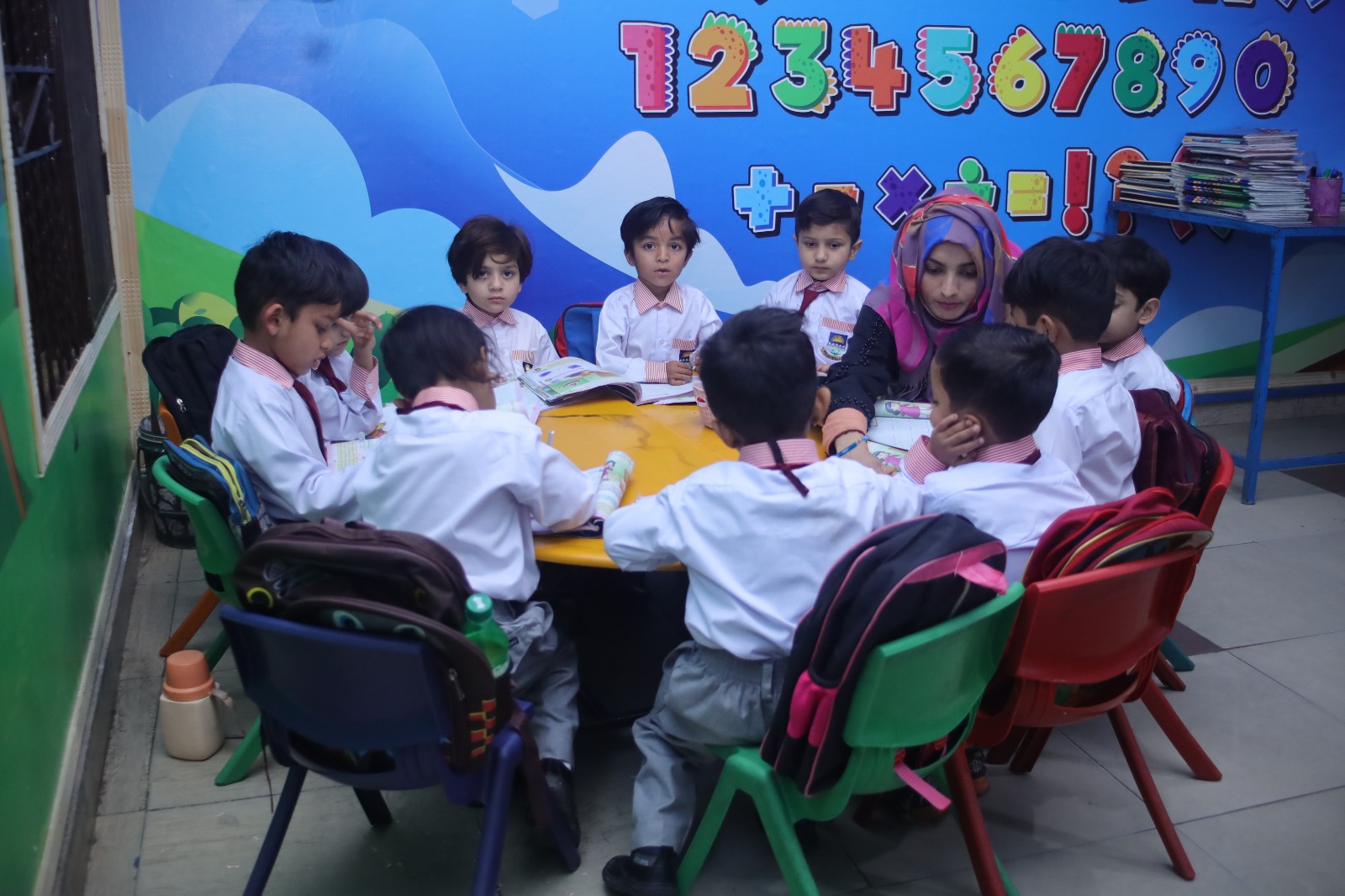In the playgroup, we conduct an oral interview with the parents and the child. For the rest of the classes (Nursery – Five), admission to any class is based on our admission test comprising of the following subjects.
Urdu
English
Maths
General knowledge / Nazra
Passing marks are 40% in the admission test
All Hafiz-e-Quran students are exempted from admission tests up to 8th class
Students must fall in the age criteria approved by PCHS
Students must have a B. form with them at the time of admission
School Leaving Certificate
Passport size picture (2)
Copy of B-form
Copy of father’s CNIC

| Class | Required Age | Class | Required Age |
|---|---|---|---|
| Playgroup | 2 Year 9 Month to 3 Year 9 Month | Nursery | 3 Year 6 Month to 4 Year 9 Month |
| Prep | 4 Year to 5 Year 9 Month | 1st | 5 Year - 6 Year 9 Month |
| 2nd | 6 Year - 7 Year 9 Month | 3rd | 7 Year - 8 Years 9 Month |
| 4th | 8 Year - 10 Year | 5th | 9 Year - 11 Year |
Age will be calculated till 1st March 2024 for admission in session 2024-25.
Age relaxation for the Hifz Quran is six months.
Parents and students are advised to carefully review all rules and regulations. They must comply with these rules in all respects. Everyone must comply with these rules. Violation of this policy may result in student expulsion.
PCHS is the only institution that offers fee-refund as per PCHS policy. If a student applies for a fee refund within three working days of admission, he/she shall be refunded 100% fee (Fee Refund Policy is available at the Admission Office)
A specialty of Punjab Central High School (PCHS) is the provision of scholarships to students who maintain academic excellence and improve their previous performance in their grades and departments. PCHS High School emphasizes quality education for children. Scholarships are awarded to create and maintain a competitive environment among students. Below is a brief description of the scholarships available to students in Grades II and above at each PCHS
elementary school:Class Position Scholarships in Term Exams
Encouragement Scholarships in Term Exams
Muhammad Shafi's' free education scholarship is given to the position holders from class Two onwards on the basis of Annual results.

Courses of study are selected to take into account modern and Islamic educational
philosophies. Each step allows students to complete the course twice per academic
year.
Academic discipline is an important part of PCHS
Classroom activities include a variety of skill-based games, strategies, and interactive activities that support student learning development. The aim of all activities is to improve students' understanding, skills or performance in a particular area through a variety of learning methods. Classroom activities are activities that students do in class after listening to the theoretical part of the teacher's lecture, as part of a request or performance of class work.


These activities encourage the development of many psychological and character aspects such
as intelligence, thinking, sociability, honesty, and beauty. Creativity, interest, energy,
and positive thinking are some characteristics of character development and the benefits of
further education. PCHS also emphasizes encouraging
students' creativity through unusual activities like writing, Qira'at and Naat competitions,
recitation competitions, debates, speeches, acting drama, skits, music, UV drama, stage
drama, competition (pre-school), story-telling, etc. lectures and indoor/outdoor activities
like PT classes, aerobics and gymnastics that contribute to all the good kids.
These activities teach students at different layers how to organize and present activities,
how to develop skills, and how to coordinate and coordinate activities. All this helps
develop leadership. When children come together with organizations, partners, teachers, and
people outside of school at cultural events, they also provide opportunities for
socialization, identity, and self-evaluation.